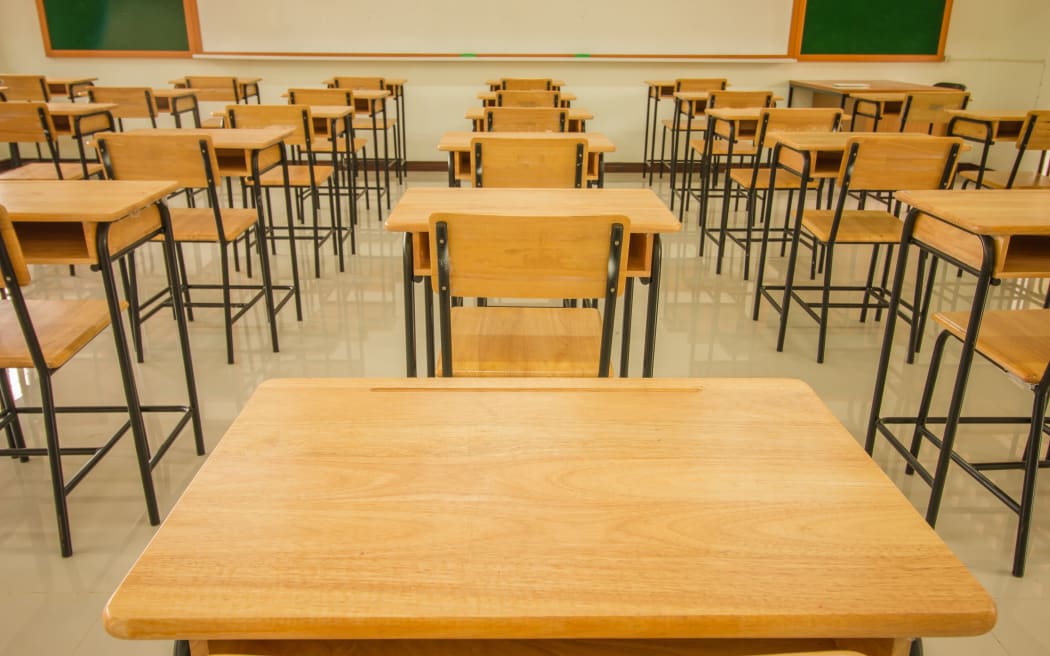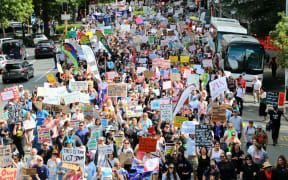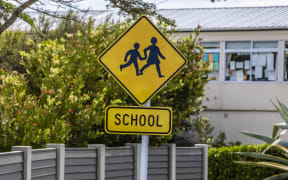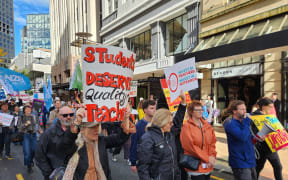
(File photo) Photo: 123RF
Secondary teachers are being called on to suspend industrial action while the possibility of independent arbitration is considered.
The Post Primary Teachers' Association (PPTA) has been in a long-running dispute with the Ministry of Education over terms to settle the secondary teachers' collective employment agreement.
Teachers have held rounds of disruptive national strikes, and rejected the latest pay offer, which included a lump sum payment and three pay rises by the end of next year.
Representatives from the two organisations met late this week for facilitated bargaining, with The Employment Relations Authority (ERA) acting as facilitators.
On Saturday, PPTA acting president Chris Abercrombie said his organisation would now consider two recommendations made by the ERA after the latest meetings, which were; for the PPTA to suspend industrial action, and for both parties to begin independent arbitration to help decide the settlement.
"These recommendations will be seriously considered by our national executive, and we will be meeting as soon as possible to discuss them and decide the next steps," Abercrombie said.
However, he said members' industrial action would remain in place while the recommendations were being considered.
Ministry of Education general manager of employment relations Mark Williamson said his organisation agreed with both of the ERA's recommendations, and urged the PPTA to stop its industrial action immediately.
"We will explore arbitration as recommended by the ERA, and if arbitration is agreed, we will work urgently with the PPTA and the Employment Relations Authority to appoint an independent arbitration panel," Williamson said.
"We call on PPTA to immediately suspend industrial action to allow students to return to uninterrupted learning.
"We believe arbitration is most likely to be the quickest way to reach a resolution. However, we believe industrial action should cease [as] it can have no influence on the arbitration process."
What would arbitration mean?
Williamson said arbitration typically involved an "independent and impartial" third party, often a panel, which would consider the points of view of both parties and make a decision on how the dispute could be ended.
While one option was for both parties to agree the arbitration decision would be binding, Williamson said the ministry's perspective was that holding non-binding arbitration would reach an agreement more quickly.
He said once both parties agreed to start arbitration, it could take several weeks to appoint arbitrators, and then could be "perhaps four to six weeks" to complete arbitration.
Low starting salaries for teachers have wide-ranging effects, Highfield says
An education academic has told RNZ that salaries which lag behind inflation do nothing to entice people into teaching.
Auckland University deputy dean of the faculty of education Dr Camilla Highfield said new graduates were starting on a rate between the minimum and living wages.
"Starting salary is really important for people - for anyone really, but particularly for young people - young people now with a degree have got a lot of options, and we really want teaching to be one of those options."
Many teachers felt they had to leave Auckland due to the cost of living, Highfield said.
Principal hopeful arbitration will help
An Auckland secondary school principal said he was hopeful that independent arbitration can resolve the teacher's pay dispute.
The president of the Secondary Principals Association Vaughan Couillaut said he would like to get back to business as usual as soon as possible.
"We all know that over the last few years things have been continually disrupted and so the sooner we can put that disruption to bed, the better."
Vaughan Couillaut says rolling strikes limit the content that schools can teach, and if they go on for much longer, will affect students learning.
"I think if it does roll into term 3 then more and more students will have significant disruption to the credential they are building."





